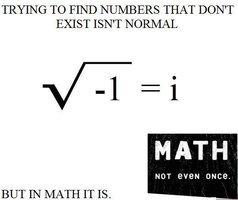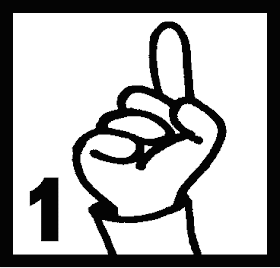There's lots of math is everywhere and everything. I've felt and said that myself. One of my favorite teaching memories is a Kindergarten class that I visited weekly, and the first moment was someone getting to challenge me: there's no math in... bridges! Are you kidding?! Bridges are all about math! Next week, there's no math in Batman!
But is it helpful? If math is everything, then maybe people are already doing all the math they need to know. Me telling them that they're doing math either makes it irrelevant, or invalidates my line of reasoning because they very well do know what math is, they had a decade or more of it, and it is not that.
On one blog, I asked is the math the thing, the mathematical description of it, or the making of the mathematical description?
Lauren said that math is tool, but it's also an opportunity. That's new to me, but also familiar. Isn't that the spirit behind #wcydwt and #anyqs? I had a little experience this week like that. I usually ask some kind of data question (mine or a learner's) on my sign in sheets and then make a display. Usually then shared on Twitter. For me it's a part of immersion, making the classroom mathematical. In some classes it leads directly into making representations, or becomes data for an activity. Almost always a chance to notice & wonder. Wednesday I shared one without the label, and it got some fun thinking. Chance for a joke, chance for some figuring.
 |
| tweet |
As for the milestones, I was struck by a few things this time.
- Numbers - lots of mention of numbers, sometimes specific like π, i or 0, sometimes familial, fractions or negatives. I am too eager to move past these, often, but now want to embrace them. The abstraction of quantity - that is a big freakin' deal.
- Pythagorean Theorem. Of course. But it is a big deal. I love its history, and continuing story, and think it must be one of the first examples of hey, this means this AND how can we use that? Thank goodness right angles are useful. Or are they useful because of this property?
- Patterns. So glad they think of this as essential. But when Eugenia Cheng says that math is the logical study of logical things, I think that math might have been born when we realized that there were patterns of patterns. When we were first meta.
- Euclid. One of the things that comes from the course is discovering the people in many cultures who took that step of writing and organizing what we know. There's something about math that makes it naturally becomes a system.
I love teaching this course, and learners who are ready to think about the meta-patterns are the main reason.
 |
| Andertoons |
PS> I was listening to Anne Lamott's TED interview yesterday where she was so encouraging about just write. Just write. It really made me want to blog, to sit down and write. So when Lauren's post made me think that I wanted to think, I wrote. I can't worry about my blog being a bunch of first drafts. I can't be held back by the two open tabs on my Twitter Math Camp post and my summer calculus post. I just have to write. If you're reading this, thank you. That's already too kind.
PPS> If you don't watch the whole thing, you might watch around 25 min in (-15), where she talks about good writing is getting the reader to say "Ooh, tell me..." That set my teacher senses tingling. Her next part of that is that a confused reader is an antagonistic reader. That's exactly teaching, right? Where is the line between a learner wanting to know more, and not knowing enough to be interested. They need the beginning of a pattern, and to believe it's not just noise.



















